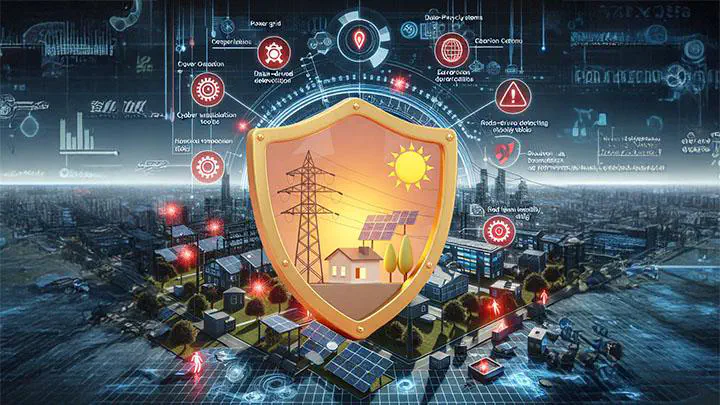Cybersecurity Center for Advanced and Resilient Energy Delivery (CyberCARED)

CyberCARED: Northeast University Cybersecurity Center for Advanced and Resilient Energy Delivery is a project by the U.S. Department of Energy’s (DOE) Office of Cybersecurity, Energy Security, and Emergency Response (CESER) to address gaps in research surrounding energy security.
My research with the CyberCARED project, funded by a DOE grant, focuses on enhancing the cybersecurity of cyber-physical systems (CPS) to protect power grid reliability in transmission and distribution systems. This work involves identifying vulnerabilities within the CPS attack space, developing data-driven detection tools for cyber network threats, and integrating these tools into a hardware-in-the-loop (HIL) testbed for validation. The project also includes organizing student competitions and red team exercises to refine these tools and gather feedback for future improvements. My contributions center on identifying cyber threats to these systems and developing effective defenses against them.
Some of the key objectives of this larger multi-university and industry project are:
- Development of Innovative Technologies and Defense Systems: The project aims to develop new technologies and defense systems to protect the electric grid from cyberattacks. This includes creating advanced tools and methodologies to detect, prevent, and respond to cyber threats.
- Education and Training Programs: The initiative focuses on providing education and training programs for the energy-sector workforce. This is to ensure that professionals are well-equipped with the knowledge and skills needed to defend against cyber threats.
- Regional Collaboration: The project emphasizes the importance of regional collaboration by bringing together universities, industry partners, national laboratories, and regional government agencies. This collaborative effort aims to address the cybersecurity infrastructure needs of the northeast corridor.
- Workforce Development: One of the main goals is to grow the U.S. cyber workforce and build expertise to tackle evolving cyber threats to the nation’s energy systems. This involves developing and broadening innovative programs dedicated to cybersecurity education and training within the power industry.
- Federal and Industry Support: The project is supported by a $2.5 million commitment from the U.S. Department of Energy (DOE) and an additional $1.1 million from industry partners, totaling $3.6 million in funding. This financial backing is crucial for the successful implementation and sustainability of the initiative.